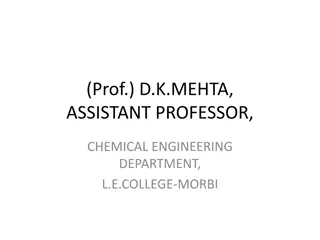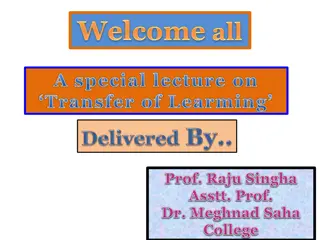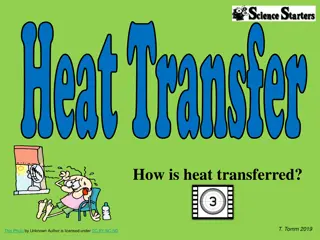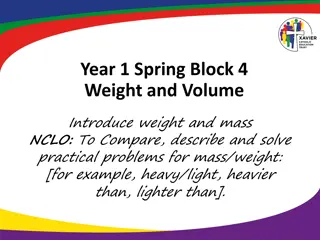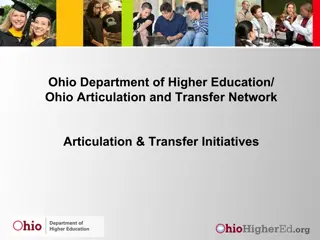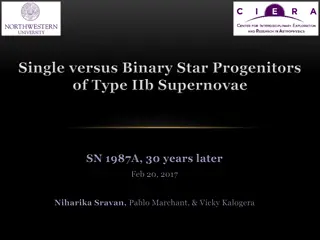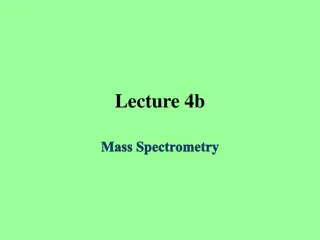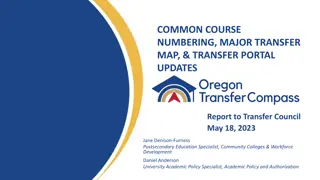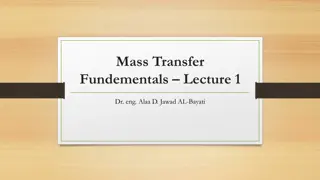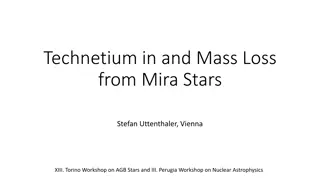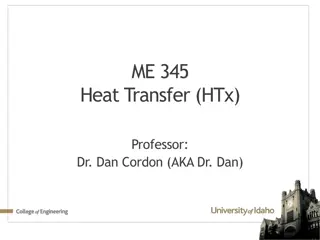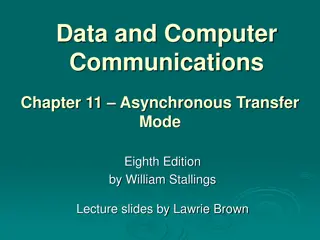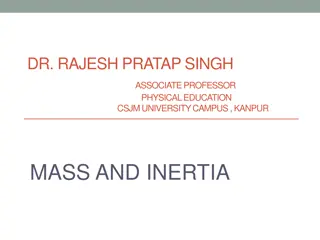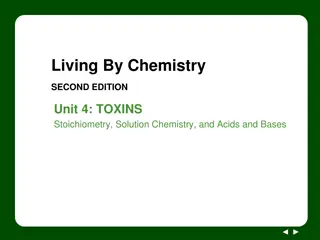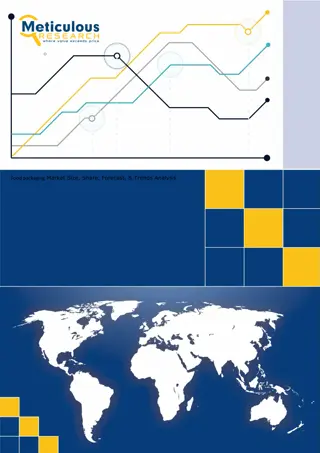Heat Transfer Labels Manufacturer, Supplier in India
Heat Transfer labels are labels where ink pigment and metalized layer is transferred from film to the product to be decorated. Transfer is done by heat & pressure on Heat transfer machine. The whole image is transferred in one single process. Heat Transfer process is solving the deficiency of other
2 views • 5 slides
Mass Media and Communication for the Academic Year 2020/2021
This content delves into the science of media, communication, and mass communication for the academic year 2020/2021. It explores the role of mass media in public communication, the characteristics of mass media, and the various types of mass media such as books, print media, films, radio, televisio
10 views • 11 slides
Unveiling the Best Mass Gainers in India for Maximum Muscle Growth
Discover the ultimate solution for achieving your muscle-building goals with the best mass gainers available in India. Our comprehensive guide delves into the top-rated products designed to support your mass gain journey effectively. Whether you're a beginner or a seasoned fitness enthusiast, these
6 views • 1 slides
COMPUTER ORGANISATION Register Transfer Language
Register Transfer Language is a symbolic notation used to describe the micro-operations transferring data among registers in computer organisation. It signifies the availability of hardware logic circuits to perform specified micro-operations and transfer results between registers. Register Transfer
7 views • 7 slides
Transfer Pricing in Organizational Decision Making
Explore the concept of transfer pricing in organizational decision-making, including factors affecting transfer prices, objectives of transfer pricing, and how it influences the autonomy and profitability of responsibility centers. Learn about different bases for setting transfer prices and examples
1 views • 13 slides
Mass and Inertia in Physics
Mass and inertia are fundamental concepts in physics. Mass is the amount of material in an object, determining its inertia - the resistance to change in motion. Objects with greater mass require more force to change their state of motion. Mass should not be confused with volume or weight, as they ar
0 views • 21 slides
Gas-Liquid Equipment in Mass Transfer Operations
Gas-liquid operations play a crucial role in mass transfer processes by facilitating intimate contact between the two fluids for efficient interphase diffusion. Various equipment such as sparged vessels (bubble columns) and mechanically agitated vessels are used to disperse gas or liquid phases, pro
3 views • 27 slides
Transfer of Command Procedures in Incident Management
The Transfer of Command lesson delves into the process of shifting incident command responsibilities, outlining reasons for transfer, and discussing how a more qualified individual's arrival does not always necessitate a change in command. The lesson emphasizes the importance of face-to-face transfe
3 views • 11 slides
Ultimate Guide to UC Transfer Admission Guarantee (TAG) Program
Explore the Transfer Admission Guarantee (TAG) program for highly competitive California community college students looking to transfer to University of California (UC) campuses like UC Davis, UC Irvine, UC Merced, UC Riverside, UC Santa Barbara, and UC Santa Cruz. Learn about TAG criteria, particip
10 views • 21 slides
Doctrine of Election under Section 35 of the Transfer of Property Act, 1882
The doctrine of election under Section 35 of the Transfer of Property Act, 1882 deals with situations where a person professes to transfer property he does not own, and the owner must elect to confirm or dissent. If the transfer is gratuitous and the transferor is unable to make a fresh transfer, th
5 views • 17 slides
Update on Forward Capacity Auction 18 Transmission Transfer Capabilities
This update covers the progress and developments surrounding the Forward Capacity Auction 18 (FCA 18) transmission transfer capabilities, Capacity Zone Development, and ongoing analyses in New England's power system. The ISO-NE has been actively reviewing interface transfer capabilities, discussing
1 views • 25 slides
Effective Mass in Crystals: Insights and Applications
The concept of effective mass in crystals delves into how electrons interact with the lattice potential, leading to altered particle masses that affect their behavior. This phenomenon is crucial in applying electrodynamics equations to charge carriers in solids, where the electron mass can differ fr
0 views • 18 slides
Transfer of Learning: Types and Examples
Transfer of learning refers to the carry-over of habits, knowledge, or skills from one area to another. This process influences performance in various situations, as seen in positive and negative transfer examples. Various definitions and types of transfer learning are explored in this special lectu
1 views • 21 slides
Heat Transfer in Engineering Applications
This content covers various aspects of heat transfer in engineering, including calculations for thermal resistances, heat transfer between different surfaces and mediums, and practical applications such as heat transfer in pipes, plates, and spheres. It also includes review questions involving heat
0 views • 8 slides
Introduction to Atomic Masses and Mass Spectrometry
Understanding atomic masses, isotopes, and mass spectrometry in the context of chemistry, particularly the concept of standard atomic mass unit (amu) and its application in measuring the masses of atoms. The content delves into the composition of atoms, isotopes, and how to determine the mass of an
2 views • 20 slides
Heat Transfer in Science
Investigate and understand the movement of heat between objects through conduction, convection, and radiation. Learn to compare materials that conduct heat with insulating materials, describe heat transfer processes, and design experiments to study heat energy movement. Explore the use of ratio reas
0 views • 31 slides
Mass, Volume, and Density in Physics
Matter, which makes up the universe, has mass and volume. Learn the differences between mass and volume, and weight, as well as how to measure them accurately. Discover why a ton of bricks and a ton of feathers have the same mass but different volume. Understanding the concepts of mass, volume, and
3 views • 12 slides
Heat Transfer Mechanisms
Heat transfer is a fundamental concept in physics, involving the movement of thermal energy between objects. This interactive content explores different types of heat transfer such as conduction, convection, and radiation. It discusses how heat is measured, the properties of various materials in con
0 views • 4 slides
Exploring Weight and Mass in Year 1 Science Curriculum
Dive into the concept of weight and mass in the Year 1 Spring Block 4 curriculum. Students compare, describe, and solve practical problems related to weight and mass using vocabulary like balance scales, heavier, lighter, and more. The content encourages engaging activities to measure and record mas
0 views • 43 slides
Mass Gathering Hajj Pharmacy Indicators: New Initiative in Saudi Arabia
This initiative in Saudi Arabia focuses on driving national mass gathering pharmaceutical programs at Hajj. The project includes guidelines, a business model, project management, and monitoring phases to improve pharmacy services during mass gatherings. The project aims to enhance clinical and econo
1 views • 4 slides
Ohio Department of Higher Education and Transfer Initiatives
Ohio Department of Higher Education focuses on transfer initiatives like Transfer Guarantees, Advanced Placement, CLEP Credits, Guaranteed Transfer Pathways, and more to help Ohioans achieve postsecondary credentials by 2025. They offer Transfer Modules, Transfer Assurance Guides, and Career-Technic
0 views • 20 slides
Unveiling the Progenitors of Stripped Envelope Supernovae (SNe)
The mechanism behind the stripping of stripped-envelope SNe remains a key question linked to their progenitors. Various mechanisms such as Single Star Progenitors, Binary Star Progenitors, Stellar Winds, and Close Binary Interactions are thought to dominate the stripping process. Observations of Typ
0 views • 12 slides
Guide to Mass Transfer in Chemical Engineering: Equations and Contactor Types
This comprehensive guide by Ahmed Al-Marjibi is tailored for junior chemical engineering students studying heat and mass transfer. It covers various mass contactor types and detailed equations for continuous and semi-batch contactors to facilitate learning in this field.
0 views • 29 slides
Mechanics Practice Problems with Force and Acceleration
Solve practice problems involving force, mass, and acceleration in physics. Calculate net force accelerating a bicycle, mass of the Space Shuttle based on thrust and acceleration, acceleration of a runner given force and mass, and acceleration of a car with a known force and mass.
1 views • 5 slides
A Brief Overview of Mass Spectrometry and Its Historical Significance
Mass spectrometry is a powerful analytical technique used to determine the masses of particles. This summary provides insights into the history of mass spectrometry, key contributions by notable scientists, electron impact mass spectrometry, connection with gas chromatography, fragmentation patterns
0 views • 10 slides
Atomic Mass and Isotopes in Atoms
Explore the concept of atomic mass in atoms, learn to compute atomic mass and mass number, identify isotopes, and calculate the number of neutrons in an atom. Understand the significance of the atomic number and mass number in determining the characteristics of elements.
1 views • 14 slides
Mass Spectrometry: From History to Techniques
Explore the fascinating history of mass spectrometry, from the discovery of isotopes by J.J. Thomson and F.W. Aston to modern developments like the quadrupole mass spectrometer. Learn about Electron Impact Mass Spectrometry, its techniques, and the information derived from mass spectra, including mo
0 views • 15 slides
Transfer Council Updates and Subcommittee Progress - May 2023
The report covers updates on common course numbering, major transfer mapping, and transfer portal advancements presented to the Transfer Council on May 18, 2023. It includes details on subcommittee alignments for Math and Psychology, communication strategies, nominations, outcomes assessment progres
0 views • 9 slides
Center of Mass in Physics
Exploring the concept of Center of Mass, this content delves into topics such as calculations, real-life examples, and scenarios involving the distribution of mass in different objects. From the mass of the Earth to practical applications in physics, the importance of determining the center of mass
0 views • 79 slides
Fundamentals of Mass Transfer: Lecture Highlights with Dr. Alaa D. Jawad AL-Bayati
This content covers the basics of mass transfer, including the definition, types, properties used for mass transfer, mass transfer rate, Fick's law, and factors influencing transfer rate in chemical reactions. Dr. Alaa D. Jawad AL-Bayati provides insights into the mechanisms and processes involved i
0 views • 9 slides
Insights into Mass Loss from Mira Stars
Stefan Uttenthaler discusses technetium presence and mass loss in Mira stars, emphasizing the detection of radioactive element Tc in their spectra and exploring variations in color, dust mass-loss rate, and gas mass-loss rate among Tc-poor and Tc-rich M-type Miras. Research also delves into the s-pr
0 views • 20 slides
Mass Spectrometry Principles and Applications
Mass spectrometry is a powerful analytical technique used to determine the molecular mass, formula, and structural features of compounds. By ionizing molecules in a mass spectrometer, it generates molecular ions that reveal valuable information about the composition of the compound. Isotope peaks he
0 views • 33 slides
Transfer Reform and Common Course Numbering Initiatives in California Higher Education
The Transfer Reform initiatives, including AB 928 and AB 1111, aim to improve student transfer achievement and streamline the transfer process in California's higher education system. AB 928 focuses on establishing a single lower-division general education pathway while AB 1111 implements a common c
0 views • 7 slides
Associate Degree for Transfer Program in California
The Associate Degree for Transfer (ADT) program in California, implemented in 2011, offers a streamlined pathway for community college students to transfer to a California State University (CSU) campus with junior standing. It guarantees admission into the CSU system, priority consideration for impa
0 views • 8 slides
Heat Transfer in Engineering Systems
Exploring the fundamental concepts of heat transfer and thermodynamics, this collection of images and explanations delves into the processes governing temperature change, energy transfer, and the analysis of systems based on the conservation of energy. From distinguishing between heat transfer and t
0 views • 16 slides
Asynchronous Transfer Mode (ATM) in Data and Computer Communications
Asynchronous Transfer Mode (ATM) is a packet transfer technology that supports multiple logical connections over a single physical interface. It uses fixed-sized packets called cells for data transfer. ATM bears similarities to packet switching and offers streamlined packet transfer with minimal err
0 views • 46 slides
Mass and Inertia in Physics
Understanding the concepts of mass and inertia in physics is essential for comprehending the behavior of objects in motion. Mass is the measure of the quantity of inertia of an object, affecting its resistance to changes in motion. In translational cases, inertia is termed as mass, measured in kilog
0 views • 8 slides
The Concept of Molar Mass in Chemistry
Explore the concept of molar mass in chemistry, including the definition of the mole, Avogadro's number, calculations for molar mass of elements and compounds, and examples of determining molar mass. Discover how to find the molar mass of various compounds through practical examples.
0 views • 39 slides
Molar Mass and Conversions in Chemistry
Explore the concept of molar mass, moles of atoms, and conversions between mass and moles in chemistry through an engaging lesson on toxins, stoichiometry, solution chemistry, and acids and bases. Learn how to calculate molar mass, describe the magnitude of a mole of a substance, and conduct simple
0 views • 10 slides
mass flow controllers (1)
The global mass flow controllers market is segmented by product type (thermal mass flow controllers, Coriolis mass flow controllers, differential pressure mass flow controllers), flow rate (low (0-50 slpm), medium (0-300 slpm), high (0-1500 slpm)), e
0 views • 5 slides






